

Dear readers,
This week had two main themes for me. Firstly, the culmination of two great Atlantic classics - here the finish of the mini-transat where the foilers once again failed to make a mark, the exciting north-or-south question at the Transat Jacques Vabre where nothing worked without foils. Rarely have I had such sleepless nights, so much fun weighing up the strategies, plotting the courses, so much respect for the performance of the participants!
The other topic was less obvious, resulting more from an accumulation of news and reports that don't easily make it into our top list. Yet its relevance can hardly be underestimated: Sustainability. And before you roll your eyes or swipe straight on because you don't want to hear it any more - stay a moment!
The 11th Hour Racing Team presented its carbon footprint on Monday. CEO Mark Towill and skipper Charlie Enright not only won The Ocean Race at the beginning of July, the first Americans to do so in the 50 years of this unofficial offshore world championship. They also underwent an unprecedented eco-audit that sets standards far beyond the regatta sector.
The life cycle assessment of their Imoca "Malama" was already a role model in 2021, not least for series boat construction, which has been less transparent in this respect to date ( Click here for the 128-page report ). The recently published environmental impact report on the entire campaign is also absolutely worth reading, because it shows how top-class sport and sustainability can be reconciled if you just want to ( to download the report ). It's great when real winning teams also score points beyond their core discipline!
On Wednesday, the new World Ocean Review was presented. It is now the eighth since 2010, and the importance of the scientific documentation on the state of the oceans, initiated by Mare publisher Nikolaus Gelpke, has never been greater. The authors leave no doubt about that.
"Climate change has become part of everyone's everyday life and has long been a bitter reality. At least half of the world's population is now suffering directly from the consequences of global warming, including in particular population groups with little money, a lack of technical possibilities and a lack of political support to take the necessary protective measures. At the same time, the already battered ecosystems are increasingly failing."
Climate and nature - that much is clear - make no compromises"
As sailors, we can't let the reading leave us cold. Because at sea or - like the heavy Baltic Sea storm surge has shown that we are not immune to extreme weather events in the harbour.
The opening of the Transat Jacques Vabre recently provided further proof of this: The Imocas, designed to withstand the worst weather, had to wait nine days in the harbour of Le Havre until they could take off. The conditions in the English Channel and the North Atlantic were too dangerous, where three pronounced storm lows in close succession had turned the sea into a death zone.
There has long been a consensus among leading climate researchers as to what the causes are and what needs to be done. Only trolls and the reality deniers they have indoctrinated still deny the connections. The World Ocean Review states:
"Over the past 120 to 170 years, humanity has caused the global surface temperature to rise by 1.15 degrees Celsius through the emission of greenhouse gases. As a result of this warming, many components of the Earth's climate have changed at a speed that our planet has not experienced for thousands of years. The consequences of these climate changes are increasingly damaging people and nature and are gradually robbing them of their livelihoods. All areas of the world are now affected by climate change. Every additional tenth of a degree of warming will lead to (this) change intensifying."
Sailing, we often hear, is fortunately an environmentally friendly form of leisure activity, because we only need the wind for propulsion and virtually no fuel. What's more, they say, boats last half a century or more. And it is, without question, more of a niche sport than a popular one.
That's true, without a doubt.
For all these reasons, we have so far been sailing below the regulatory radar: hardly any limit values, no recycling quotas, not even voluntary commitments to reduce resource consumption. Considering the precarious situation of the planet, it is irritating to say the least. It reminds me of the on-board band led by Wallace Hartley on the aft deck of the "Titanic", which was still playing music when the ship had long since broken up after colliding with an iceberg. Even in inland areas such as Lake Constance, which serve as drinking water reservoirs, veritable ocean-going yachts with large diesel engines are permitted as a matter of course.
One can certainly ask what would be the point of limiting the CO2 emissions of a machine that is only used sporadically, or setting requirements for the recyclability of yacht hulls, as long as many more motorhomes and caravans are being launched on the market every year.
And yet it is reminiscent of the not entirely absurd, but unfortunately not really effective argument that we in Europe do not even need to start with climate protection if China and the USA, the largest emitters of greenhouse gases, do not join in.
As comparatively small as the pleasure craft market may be from a global perspective, it is unfortunately also true that GRP yachts consume a great deal of resources during construction and cannot be recycled even halfway satisfactorily at the end of their lives. That the number of engine hours in the charter sector has risen exorbitantly, to over 1,000 per year in some mid-range areas, because the engine is used just as much when there is too little wind as when there is supposedly too much. And that owners and charterers often travel long distances for a weekend or a week on the water.
Fortunately, things are gradually starting to move in the world of sailing. It is true that the vast majority of boat builders, outfitters and charter companies are still a long way from the consistency with which the Ocean Race winners from 11th Hour Racing have tackled the issue. But more and more companies are beginning to question the status quo - and are taking action.
Greenboats is a small model shipyard for sustainability in Germany that has won international awards for its technology and expertise. Beneteau, the world's largest sports boat manufacturer, has now also set out to significantly reduce its carbon footprint.
These and many other examples can be found in the new YACHT Sustainability Special, which will be in our subscribers' mailboxes from this weekend and will be available in the Delius Klasing Shop or in the DK Magazine Kiosk app ( iOS and Android ) can be ordered.
One of my personal favourite projects is the new Bestevaer 36. Its hull consists of two thirds recycled aluminium and is superior to any GRP yacht in terms of both production and recycling. Author Alexander Worms describes it as one of those ships "that used to be window frames, coffee capsules or road signs". Her deck is non-slip thanks to glass bead blasting, so she needs neither a coating nor textured paint. Aluminium yachts, writes Alex in the special issue, are therefore not green per se, but at least "so little as unsustainable as possible". This is because they also pollute the planet several times more than the CO2 emissions generated by a car during production.
It is, you guessed it, complicated. But ways can be found if you want to. And sometimes it can be quite simple. This special issue presents dozens of solutions - technical ones that are still in their infancy, but also ones that we all have in our own hands: the next time we charter a boat, the next time we buy new mooring lines or sails.
Incidentally, an electric drive won the top prize at the leading global equipment trade fair Mets, which took place from Wednesday to Friday in Amsterdam: Oceanvolt won the prestigious Dame Award with the 25 kW HighPower ServoProp, as Max Gasser reported here. When used as a trolling generator, the electric motor from Finland can pump up to 5 kW per hour of electrical energy back into the batteries while sailing. Not a perpetual motion machine, but close enough as long as the wind blows.
We need more innovations like this - not even bigger boats, even more wet cells, even more fridges, even more of everything that has nothing to do with the appeal of sailing.
Jochen Rieker,
Publisher YACHT
Order the YACHT sustainability special edition 24a now:
- shop.delius-klasing.de
- DK Magazine Kiosk App: iOS and Android
Newsletter: YACHT-Woche
Der Yacht Newsletter fasst die wichtigsten Themen der Woche zusammen, alle Top-Themen kompakt und direkt in deiner Mail-Box. Einfach anmelden:
Click to see through
The week in pictures:
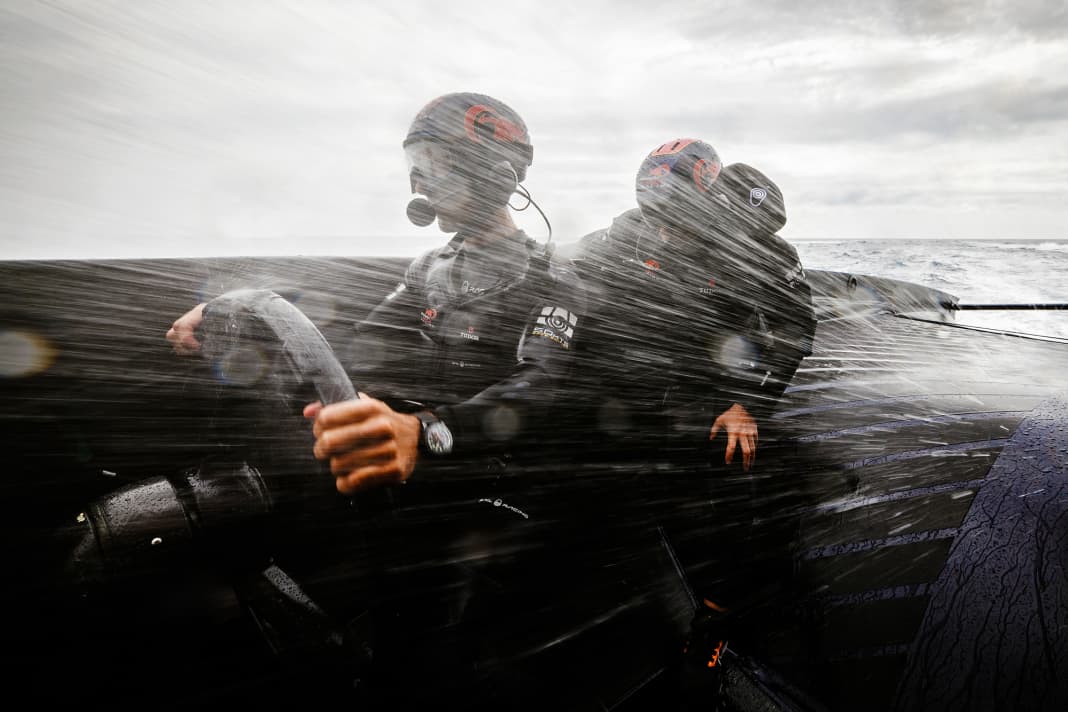





Recommended reading from the editorial team:

J/36
Timeless hull shape in a new edition
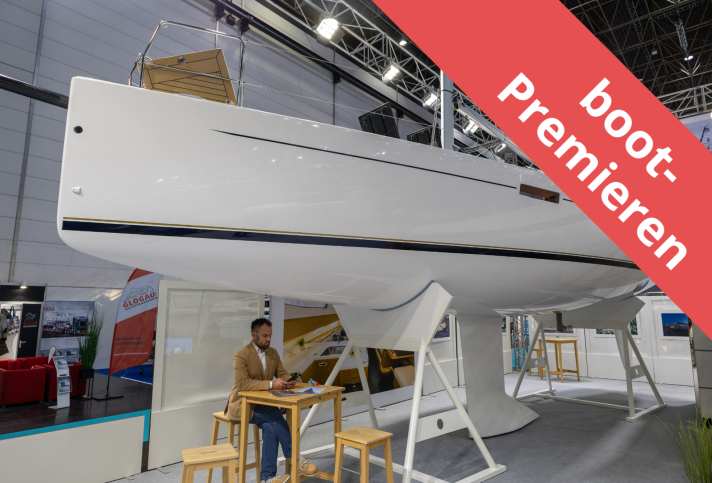
With the new J/36, J/Boats rounds off the bottom end of the brand's Elegance programme. The trunk boat now comes with two wheels.
New podcast episode
Psychologist Thomas Bickhardt explains seasickness

What exactly is seasickness? Psychologist and experienced sailor Thomas Bickhardt talks about it in the 57th episode of YACHT - the sailing podcast.
Interview
Pensioner rounds Cape Horn despite losing his oars
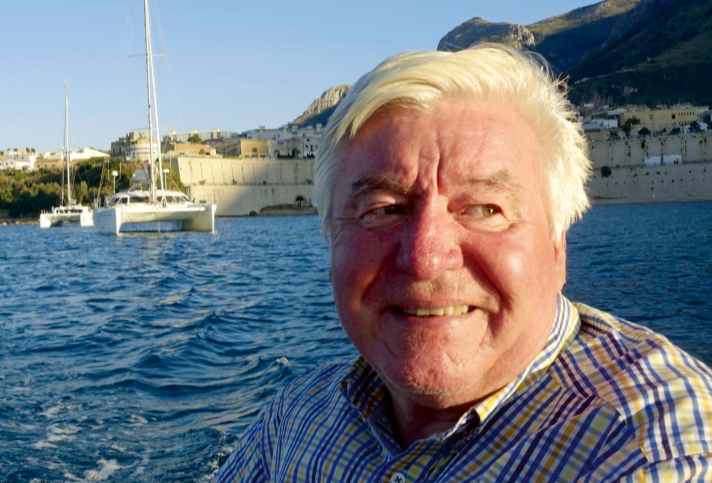
A professor went sailing around the world after his retirement. He rounded Cape Horn with his 55-foot ocean-going cat - but one rudder is missing.
Hallberg-Rassy 370
Sailing and living at the highest level in the YACHT test
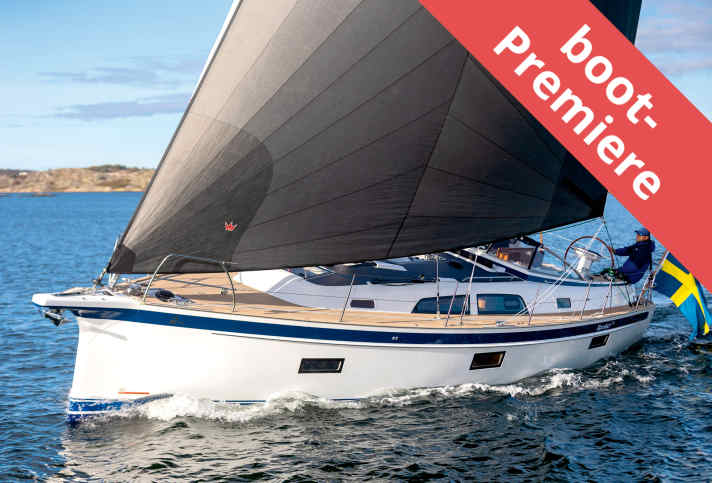
With the Hallberg-Rassy 370, the Swedes present a cruising yacht that leaves almost nothing to be desired. We have tested the first model.
Denmark
Charter cruise in the Samsøbelt - Part 1: Samsø
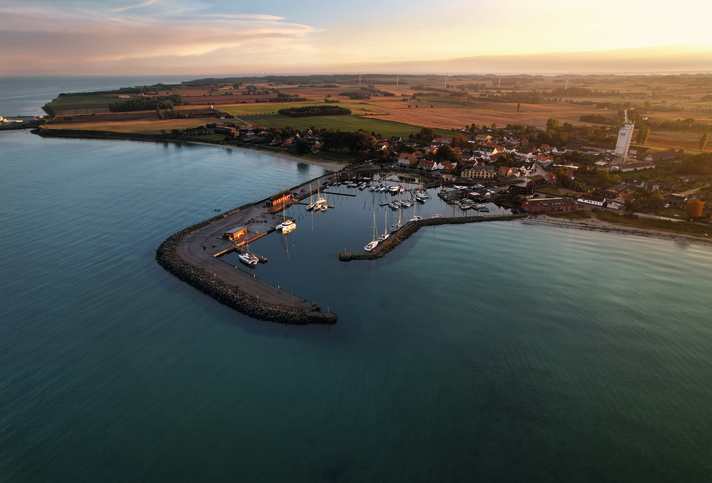
From quiet island harbours to the heart of the city: a late summer cruise between Samsø, Tunø and Aarhus.
RORC Transatlantic Race 2026
Start off Lanzarote under ideal conditions
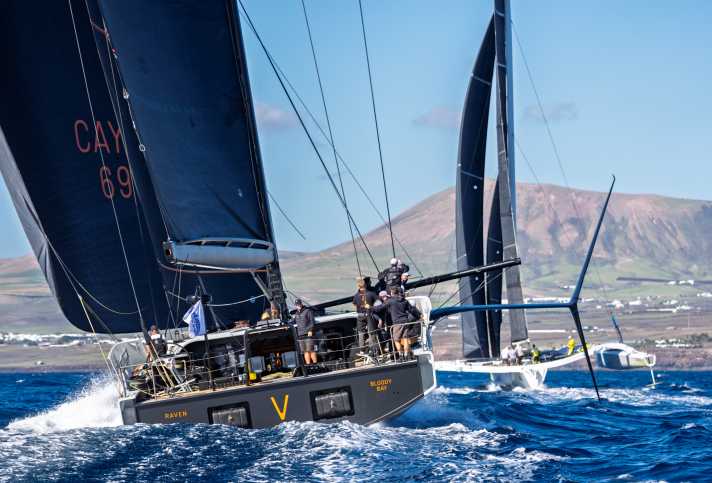
The 12th edition of the RORC Transatlantic Race from Lanzarote to Antigua was heralded by a steady north-easterly wind. For the MOD70 trimarans and fast monohulls, strategically important decisions had to be made early on.
Contest 56CS
A big surprise package from Holland for Düsseldorf
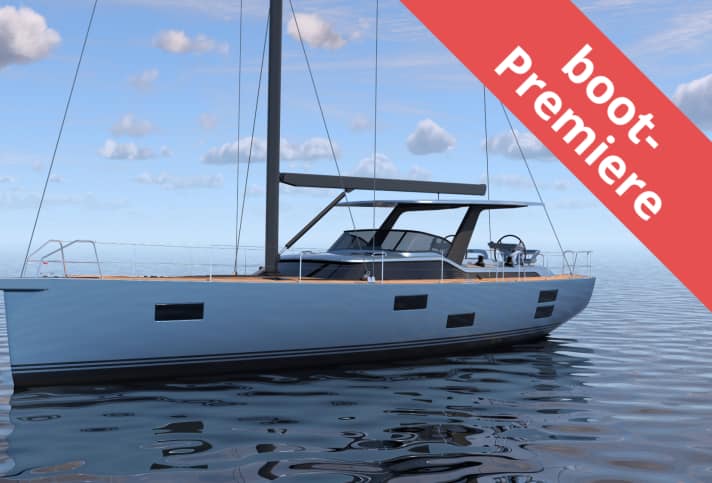
Contest Yachts in Holland is bringing a new 56CS to the trade fair in Düsseldorf as a world premiere. The new boat is a further development of the 55CS with many new features and options.
Globe40
Belgian 24-hour record, storm rides at the ice edge
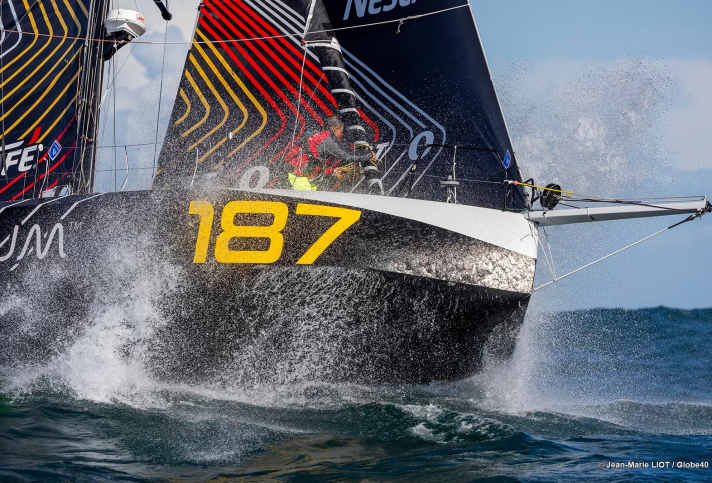
The Class40 scows show what's possible in Globe40: the Belgians have broken the 24-hour record in the round-the-world race. The Southern Ocean is stormy.
Circumnavigations
Three tris, three worlds - "Sodebo" record at Cape Horn
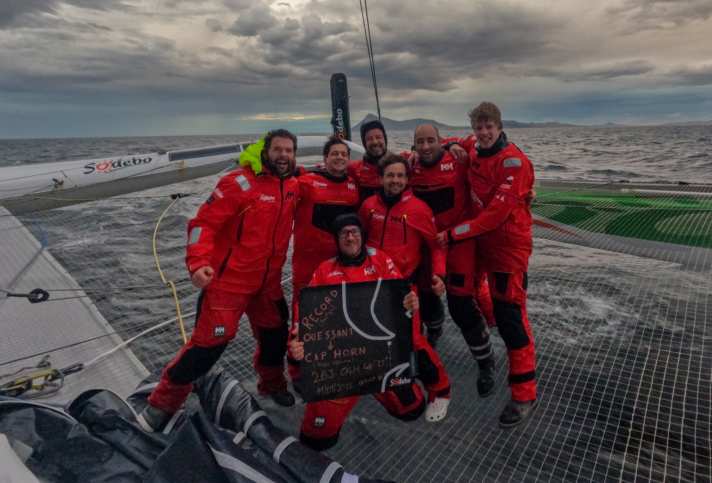
Team Sodebo has passed Cape Horn in record time. In the battle for the Jules Verne Trophy, the crew holds the trump cards in their non-stop circumnavigation.
Sailing special
What you should know about your cloths
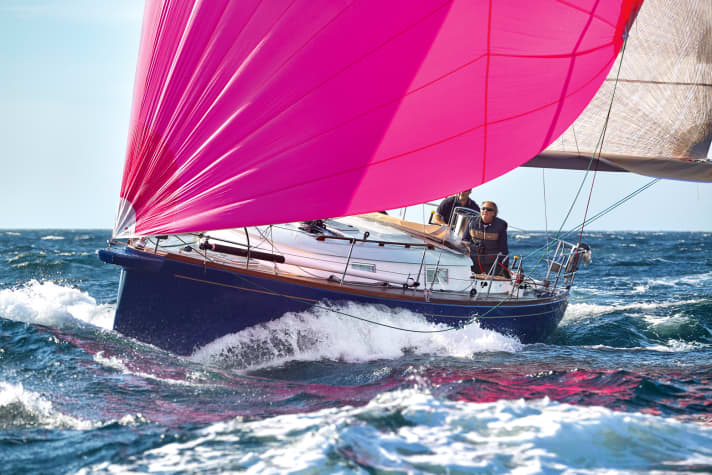
Most sailors would describe the sails as one of the most important components of their yacht, but only very few really know about their cloths. The right choice of sails and care not only has an impact on performance, but also on your wallet. In this sail special, we therefore take a close look at the propulsion of sailing yachts, from the right cut to the latest technology and how to care for the old Dacron cloth.
YACHT webinars
Beginner webinars for everyone. Register now!
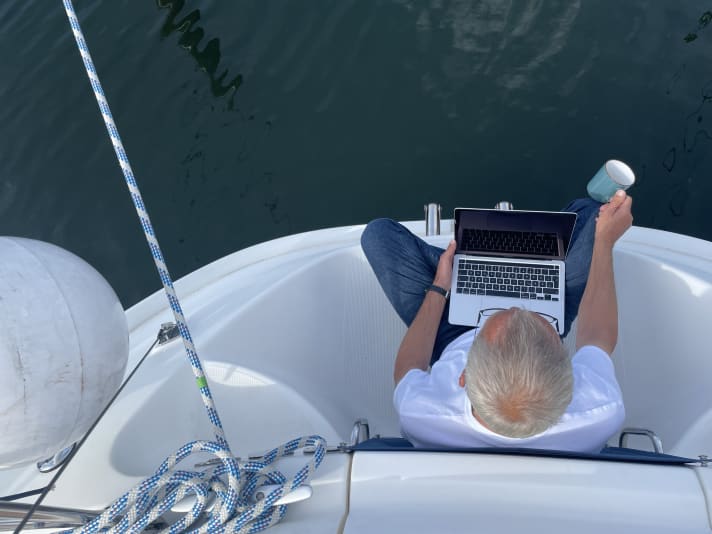
On 2 November, we launched our extensive range of interesting online lectures on the most important topics relating to sailing. Let our experts get you in shape for the new season. In a series of webinars, we share practical knowledge and our experience on topics that concern beginners and experts alike
Newsletter: YACHT-Woche
Der Yacht Newsletter fasst die wichtigsten Themen der Woche zusammen, alle Top-Themen kompakt und direkt in deiner Mail-Box. Einfach anmelden:

